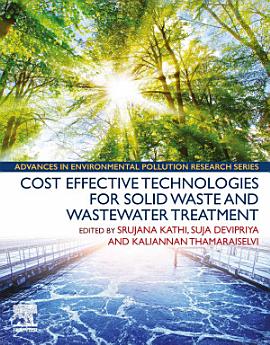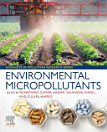Cost Effective Technologies for Solid Waste and Wastewater Treatment
About this ebook
About the author
Srujana Kathi is an independent researcher in the Department of Ecology and Environmental Sciences at Pondicherry University. Her interests range from environmental monitoring and assessment and phytoremediation to environmental epidemiology and cognitive neuroscience. She completed her doctoral thesis on Bioremediation of Polycyclic Aromatic Hydrocarbons in Soil at Pondicherry University. She has written multiple journal articles and book chapters.
Suja P. Devipriya is Assistant Professor of Pondicherry University. She received her PhD in Environmental Technology from Cochin University of Science and Technology. Her primary areas of interest include environmental photocatalysis, environmental biotechnology, solid waste management, and industrial ecology. Previously, she was a Senior Research Fellow at Cochin University of Science and Technology, and then a Post-Doctoral Fellow at Bowling Green State University in the US.
K. Thamaraiselvi is Associate Professor of Environmental Biotechnology at Bharathidasan University. She received her Masters in Ecobiology and her PhD in Environmental Sciences from Bharathiar University. Previously, she was a postdoctoral researcher at CIES in France and then a Research Professor at Yonsei University in South Korea. Since 2018, she has been an Executive Committee Member in the Clean Green Initiative at Bharathidasan University. Her areas of research include molecular bioremediation, bioenergy production, microbial biodiversity, environmental risk assessment, and nanobiotechnology. She has written more than 30 journal articles and 6 book chapters.
Dr. Muhammad Zaffar Hashmi is Assistant Professor of Environmental Engineering in the Department of Chemistry, COMSATS University, Pakistan. He received his Ph.D. in Environmental Chemistry and Toxicology from Zhejiang University, China. Dr. Hashmi’s research interests are analytical chemistry and the development of treatment technologies to control environmental and industrial pollution. He also has expertise in developing environmentally sustainable and feasible technologies including bioremediation, using innovative microbes and genes, plants, and microcosms. He has edited seven books, 14 book chapters, 80 original research articles and is currently series editor of two environmental contaminant book series. Dr. Hashmi is also an Associate Editor of the Arabian Journal of Geosciences. Dr. Hashmi is Member of the Pakistan Academy of Sciences, International Toxicology Society, HEC and PSF Research Grants Committee, and has been awarded a KANS Prize in OIC countries by MUSTAFA Science and Technology Foundation.






